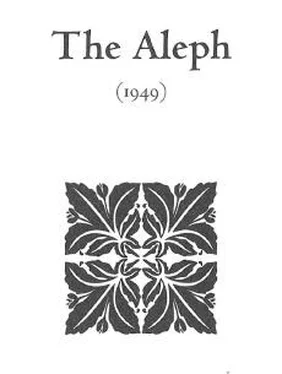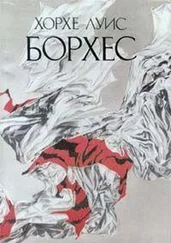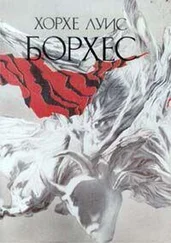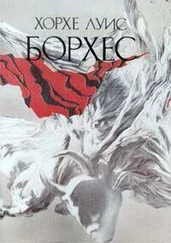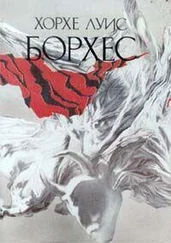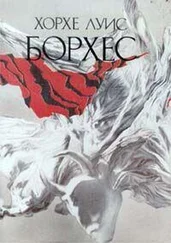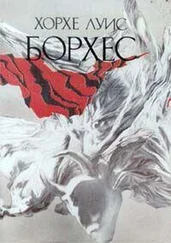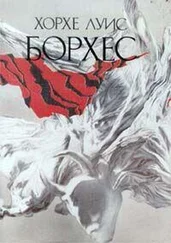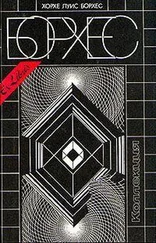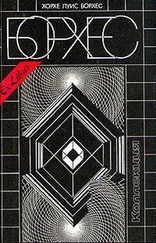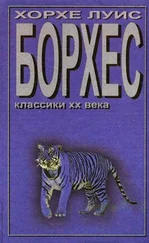Хорхе Борхес - Collected Fictions
Здесь есть возможность читать онлайн «Хорхе Борхес - Collected Fictions» весь текст электронной книги совершенно бесплатно (целиком полную версию без сокращений). В некоторых случаях можно слушать аудио, скачать через торрент в формате fb2 и присутствует краткое содержание. Год выпуска: 1999, ISBN: 1999, Издательство: Penguin (UK), Жанр: Старинная литература, на английском языке. Описание произведения, (предисловие) а так же отзывы посетителей доступны на портале библиотеки ЛибКат.
- Название:Collected Fictions
- Автор:
- Издательство:Penguin (UK)
- Жанр:
- Год:1999
- ISBN:9780140286809
- Рейтинг книги:5 / 5. Голосов: 1
-
Избранное:Добавить в избранное
- Отзывы:
-
Ваша оценка:
- 100
- 1
- 2
- 3
- 4
- 5
Collected Fictions: краткое содержание, описание и аннотация
Предлагаем к чтению аннотацию, описание, краткое содержание или предисловие (зависит от того, что написал сам автор книги «Collected Fictions»). Если вы не нашли необходимую информацию о книге — напишите в комментариях, мы постараемся отыскать её.
Collected Fictions — читать онлайн бесплатно полную книгу (весь текст) целиком
Ниже представлен текст книги, разбитый по страницам. Система сохранения места последней прочитанной страницы, позволяет с удобством читать онлайн бесплатно книгу «Collected Fictions», без необходимости каждый раз заново искать на чём Вы остановились. Поставьте закладку, и сможете в любой момент перейти на страницу, на которой закончили чтение.
Интервал:
Закладка:
He had effortlessly learned English, French, Portuguese, Latin. I suspect, nevertheless, that he was not very good at thinking. To think is to ignore (or forget) differences, to generalize, to abstract. In the teeming world of Ireneo Funes there was nothing but particulars—and they were virtually immediate particulars.
The leery light of dawn entered the patio of packed earth.
It was then that I saw the face that belonged to the voice that had been talking all night long. Ireneo was nineteen, he had been born in 1868; he looked to me as monumental as bronze—older than Egypt, older than the prophecies and the pyramids. I was struck by the thought that every word I spoke, every expression of my face or motion of my hand would endure in his implacable memory; I was rendered clumsy by the fear of making pointless gestures.
Ireneo Funes died in 1889 of pulmonary congestion.
The Shape of the Sword
His face was traversed by a vengeful scar, an ashen and almost perfect arc that sliced from the temple on one side of his head to his cheek on the other. His true name does not matter; everyone in Tacuarembó called him "the Englishman at La Colorada."The owner of the land, Cardoso, hadn't wanted to sell it; I heard that the Englishman plied him with an argument no one could have foreseen—he told him the secret history of the scar. He had come from the border, from Rio Grande doSul;there were those who said that over in Brazil he had been a smuggler. The fields had gone to grass, the water was bitter; to put things to right, the Englishman worked shoulder to shoulder with his peons. People say he was harsh to the point of cruelty, but scrupulously fair. They also say he liked his drink; once or twice a year he would shut himself up in the room in the belvedere, and two or three days later he would emerge as though from a battle or a spell of dizziness—pale, shaking, befuddled, and as authoritarian as ever. I recall his glacial eyes, his lean energy, his gray mustache. He was standoffish; the fact is, his Spanish was rudimentary, and tainted with the accents of Brazil. Aside from the occasional business letter or pamphlet, he got no mail.
The last time I made a trip through the northern provinces, high water along the Caraguatá forced me to spend the night at La Colorada. Within a few minutes I thought I sensed that my showing up that way was somehow inopportune. I tried to ingratiate myself with the Englishman, and to do so I seized upon patriotism, that least discerning of passions. I remarked that a country with England's spirit was invincible. My interlocutor nodded, but added with a smile that he wasn't English—he was Irish, from Dungarvan. That said, he stopped, as though he had let slip a secret.
We went outside after dinner to have a look at the sky. The clouds had cleared away, but far off behind the sharp peaks, the southern sky, creviced and split with lightning, threatened another storm. Back in the dilapidated dining room, the peon who'd served dinner brought out a bottle of rum. We drank for a long time, in silence.
I am not sure what time it was when I realized that I was drunk; I don't know what inspiration or elation or boredom led me to remark on my host's scar. His face froze; for several seconds I thought he was going to eject me from the house. But at last, his voice perfectly ordinary, he said to me:
"I will tell you the story of my scar under one condition—that no contempt or condemnation be withheld, no mitigation for any iniquity be pleaded."
I agreed. This is the story he told, his English interspersed with Spanish, and even with Portuguese:
· · ·
In 1922, in one of the cities of Connaught, I was one of the many young men who were conspiring to win Ireland's independence. Of my companions there, some are still living, working for peace; others, paradoxically, are fighting under English colours, at sea or in the desert; one, the best of us all, was shot at dawn in the courtyard of a prison, executed by men filled with dreams; others (and not the least fortunate, either) met their fate in the anonymous, virtually secret battles of the civil war. We were Republicans and Catholics; we were, I suspect, romantics. For us, Ireland was not just the Utopian future and the unbearable present; it was a bitter yet loving mythology, it was the circular towers and red bogs, it was the repudiation of Parnell, and it was the grand epics that sing the theft of bulls that were heroes in an earlier incarnation, and in other incarnations fish, and mountains. ... One evening I shall never forget, there came to us a man, one of our own, from Munster—a man called John Vincent Moon.
He couldn't have been more than twenty. He was thin yet slack-muscled, all at once—he gave the uncomfortable impression of being an invertebrate. He had studied, ardently and with some vanity, virtually every page of one of those Communist manuals; he would haul out his dialectical materialism to cut off any argument. There are infinite reasons a man may have for hating or loving another man; Moon reduced the history of the world to one sordid economic conflict. He declared that the Revolution was foreordained to triumph. I replied that only lost causes were of any interest to a gentleman.... Night had fallen; we pursued our cross-purposes in the hallway, down the stairs, then through the vague streets. The verdicts Moon handed down impressed me considerably less than the sense of unappealable and absolute truth with which he issued them. The new comrade did not argue, he did not debate—he pronounced judgement, contemptuously and, to a degree, wrathfully.
As we came to the last houses of the city that night, we were stupefied by the sudden sound of gunfire. (Before this, or afterward, we skirted the blind wall of a factory or a gaol.) We turned down a dirt street; a soldier, huge in the glare, burst out of a torched cottage. He shouted at us to halt. I started walking faster; my comrade did not follow me. I turned around— John Vincent Moon was standing as motionless as a rabbit caught in one's headlights—eternalized, somehow, by terror. I ran back, floored the soldier with a single blow, shook Vincent Moon, cursed him, and ordered him to come with me. I had to take him by the arm; the passion of fear had stripped him of all will. But then we did run—we fled through the conflagration-riddled night. A burst of rifle fire came our way, and a bullet grazed Moon's right shoulder; as we fled through the pine trees, a weak sob racked his breast.
In that autumn of 1922 I had gone more or less underground, and was living in General Berkeley's country house. The general (whom I had never seen) was at that time posted to some administrative position or other out in Bengal; the house was less than a hundred years old but it was gloomy and dilapidated and filled with perplexing corridors and pointless antechambers. The museum-cabinet and huge library arrogated to themselves the entire lower floor—there were the controversial and incompatible books that are somehow the history of the nineteenth century; there were scimitars from Nishapur, in whose frozen crescents the wind and violence of battle seemed to be living on. We entered the house (I think I recall) through the rear. Moon, shaking, his mouth dry, mumbled that the events of the night had been "interesting"; I salved and bandaged him, then brought him a cup of tea. The wound was superficial. Suddenly, puzzled, he stammered:
"You took a terrible chance, coming back to save me like that."
Читать дальшеИнтервал:
Закладка:
Похожие книги на «Collected Fictions»
Представляем Вашему вниманию похожие книги на «Collected Fictions» списком для выбора. Мы отобрали схожую по названию и смыслу литературу в надежде предоставить читателям больше вариантов отыскать новые, интересные, ещё непрочитанные произведения.
Обсуждение, отзывы о книге «Collected Fictions» и просто собственные мнения читателей. Оставьте ваши комментарии, напишите, что Вы думаете о произведении, его смысле или главных героях. Укажите что конкретно понравилось, а что нет, и почему Вы так считаете.
